How the European Union failed to uphold ‘rule of law’ among its members
MEPs threaten to block coronavirus recovery package over decline in democracy across member states
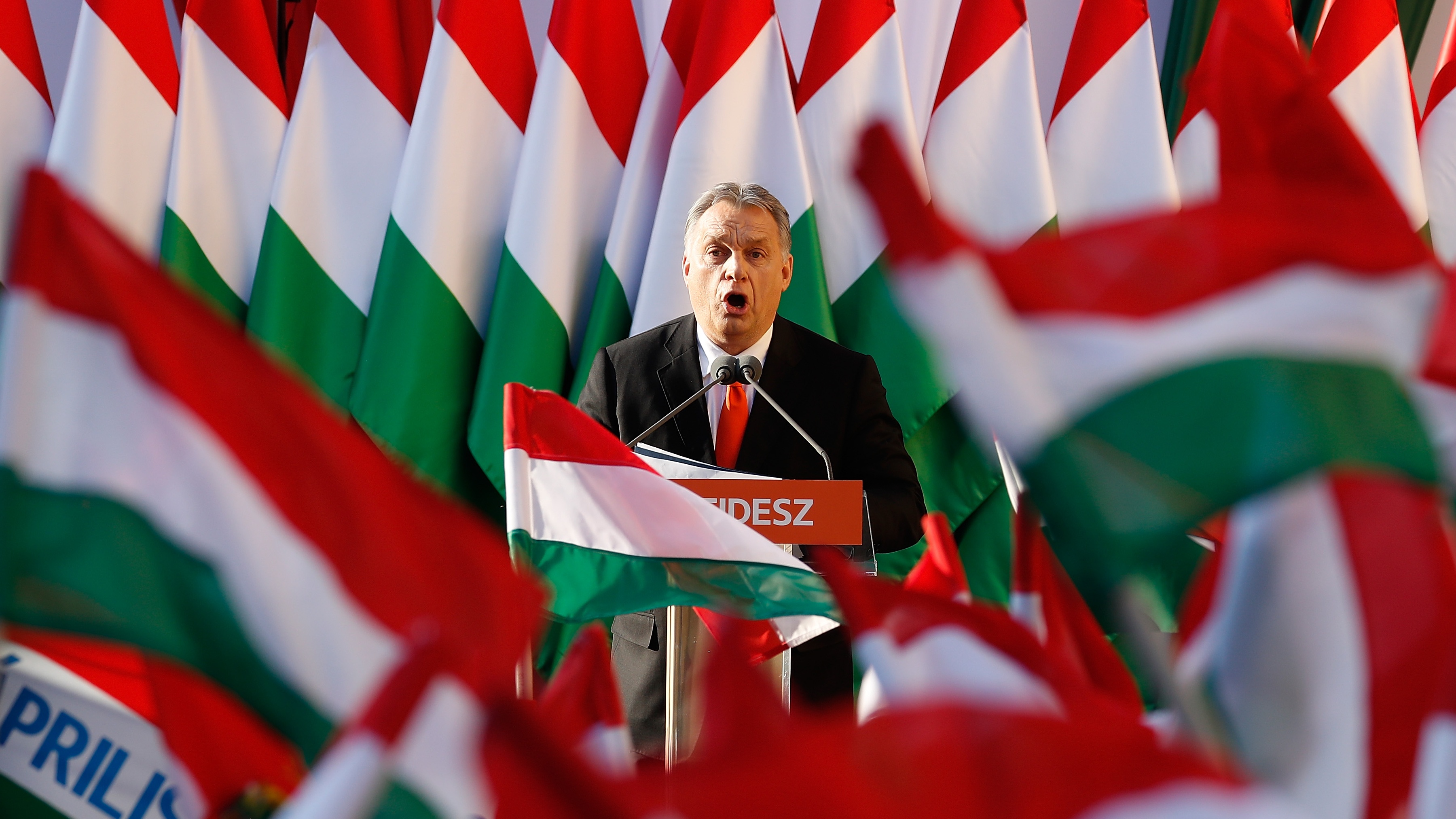
Members of the European Parliament (MEPs) have said they will refuse to rubber stamp the European Union’s budget and coronavirus recovery package due to concerns over spending and the health of democracy among member states.
A total of 465 MEPs voted for a resolution that could withhold backing for the deal. The resolution says that MEPs “do not accept” the terms of the EU's budget and recovery kacage and criticises the cuts to health, research and climate research, adding that the group “strongly regrets” weakened efforts to tie EU funding to the rule of law.
EU leaders agreed a “watered-down wording” on a mechanism to tie disbursement of funding to upholding democratic norms, in a move set to “embolden nationalist leaders in Poland and Hungary”, Reuters says.
Subscribe to The Week
Escape your echo chamber. Get the facts behind the news, plus analysis from multiple perspectives.

Sign up for The Week's Free Newsletters
From our morning news briefing to a weekly Good News Newsletter, get the best of The Week delivered directly to your inbox.
From our morning news briefing to a weekly Good News Newsletter, get the best of The Week delivered directly to your inbox.
It is not the first time the EU has come under pressure for yielding to its least democratic members.
Democratic backslide
The two member states that have caused EU leaders the biggest headache over their assault on the rule of law are Hungary and Poland.
The former, led by right-wing populist Viktor Orban, has been described as “the EU’s first dictatorship” by Euractiv. In April, the country passed a law that handed the prime minister the right to rule by decree indefinitely and suspend existing laws.
Passed under the guise of “coronavirus emergency powers”, the law also saw Hungary “suspend future elections, effectively eradicating democracy in the country and making Orban the world's newest dictator”, Business Insider says.
While the legislation tightened Orban’s grip over Hungary, it marked another step in “a decade of authoritarian moves”, Human Rights Watch (HRW) reports.
“Step by step”, the group says, Orban and his Fidesz party have “politicized the courts, decimated independent media, destroyed academic freedom, hobbled civil society, and promoted xenophobia”.
In 2018, The New York Times reported that Orban’s steps to consolidate his power made him “an icon to far-right figures such as Stephen K. Bannon”, while also providing “a blueprint for the erosion of democratic institutions in countries like Poland”.
That erosion has now set in, with Poland’s ruling party also flouting democratic norms and beginning to show signs of turning into what Orban terms an “illiberal democracy”.
Writing in The Atlantic ahead of the country’s election this year, Yascha Mounk writes that Poland has undergone “a massive attack” on its democratic institutions over the past four years.
“In an astoundingly short span of time”, Mounk says, the country’s state television networks have become “reliable purveyors of government propaganda”, “control of the country’s court system” has been achieved and free speech has been restricted.
Incumbent President Andrzej Duda this month won a narrow victory in a run-off presidential election over pro-EU Warsaw mayor Rafal Trzaskowski, running a campaign “with alleged anti-Semitic and homophobic undertones”, EuroNews reports.
The victory is likely to contribute to a “strained relationship with the EU”, the news site adds, after Duda nailed his colours to the mast by describing the EU as an “imaginary community” that does little to help Poland.
Has the EU done too little?
In the aftermath of the EU recovery budget negotiations, Orban’s message to his supporters was clear: “We fought it out!”
Polish Prime Minister Mateusz Morawiecki sounded a similar note, telling reporters that “Poland cannot be deprived of a single euro.”
Dutch PM Mark Rutte had pushed heavily for stringent rules on freezing recovery funds for countries that violate democratic norms, leading Orban to tell reporters that he could not understand “the personal reason for the Dutch prime minister to hate me or Hungary”.
But political analysts told Reuters that under the agreed terms, “Much will now depend on how quickly and firmly the EU… moves to agree on a mechanism that would force member states to uphold democratic values”.
Piotr Buras, director of the European Council on Foreign Relations think tank’s Warsaw office, told the news agency that the summit’s conclusions were “very unclear… both politically and legally”.
“If there is a lack of this conditionality or the... mechanism is very weak, then it will be a huge win for [Hungary and Poland]”, Buras added, suggesting that Germany, which holds the EU presidency for the rest of 2020, may still be able to introduce rule of law restrictions on funding.
‘Hello, dictator’
In 2015, as Orban walked to greet him, then-EU Commission President Jean-Claude Juncker delivered a barb that summed up what HRW describes as the “handwringing and milquetoast statements” of the EU. “Hello, dictator,” he reportedly said.
Three years later, the EU parliament launched an “Article Seven” against Hungary, triggering a mechanism that allows sanctions against states that breach the bloc’s values. However, critics said that what followed was “foot-dragging”, with “the EU Commission and member states doing almost nothing to stop Orban”, HRW says.
The vote was the first time that the EU Parliament considered launching the Article Seven sanctions process against a member state, with Juncker telling reporters that he had “given up” on trying to talk with Orban about his hardline policies, saying “there are big differences” between the Hungary and its fellow EU member states.
But “a stronger response was possible”, HRW says. “Ten million EU citizens now live under authoritarian rule. How many millions more will have to suffer the loss of their freedoms before Europe’s leaders draw the line?”
Sign up for Today's Best Articles in your inbox
A free daily email with the biggest news stories of the day – and the best features from TheWeek.com
Joe Evans is the world news editor at TheWeek.co.uk. He joined the team in 2019 and held roles including deputy news editor and acting news editor before moving into his current position in early 2021. He is a regular panellist on The Week Unwrapped podcast, discussing politics and foreign affairs.
Before joining The Week, he worked as a freelance journalist covering the UK and Ireland for German newspapers and magazines. A series of features on Brexit and the Irish border got him nominated for the Hostwriter Prize in 2019. Prior to settling down in London, he lived and worked in Cambodia, where he ran communications for a non-governmental organisation and worked as a journalist covering Southeast Asia. He has a master’s degree in journalism from City, University of London, and before that studied English Literature at the University of Manchester.
-
 How can you find a financial adviser you trust?
How can you find a financial adviser you trust?the explainer Four ways to detect professionals who will act in your best interest
-
 8 gifts for the host that does the most
8 gifts for the host that does the mostThe Week Recommends Show your appreciation with a thoughtful present
-
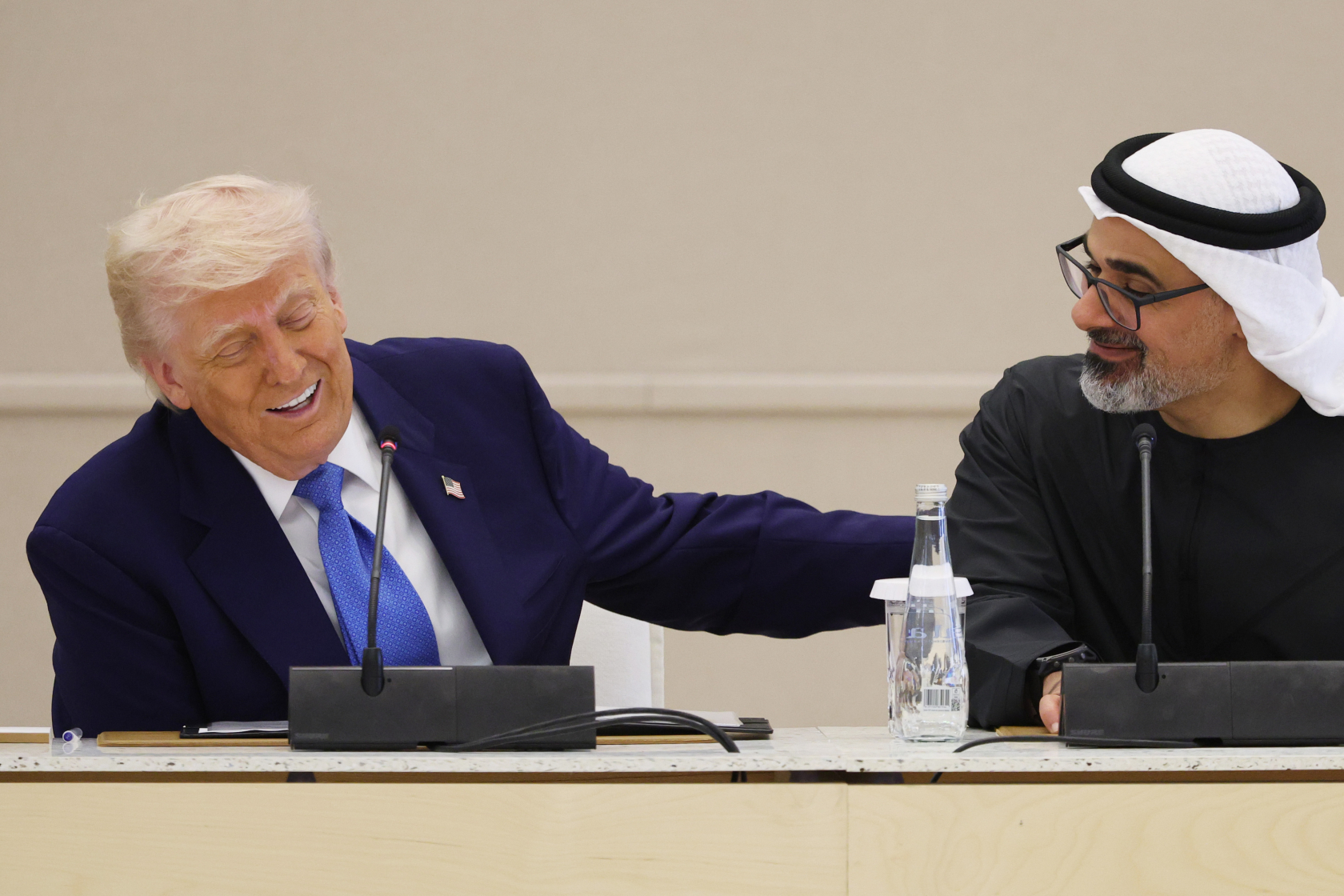 Trump touts ambiguous 'deals' as Middle East trip wraps
Trump touts ambiguous 'deals' as Middle East trip wrapsIN THE SPOTLIGHT The president's whirlwind regional tour concludes with glitz, bravado and an unclear list of concrete accomplishments
-
 On VE Day, is Europe alone once again?
On VE Day, is Europe alone once again?Today's Big Question Donald Trump's rebranding of commemoration as 'Victory Day for World War Two' underlines breakdown of post-war transatlantic alliance
-
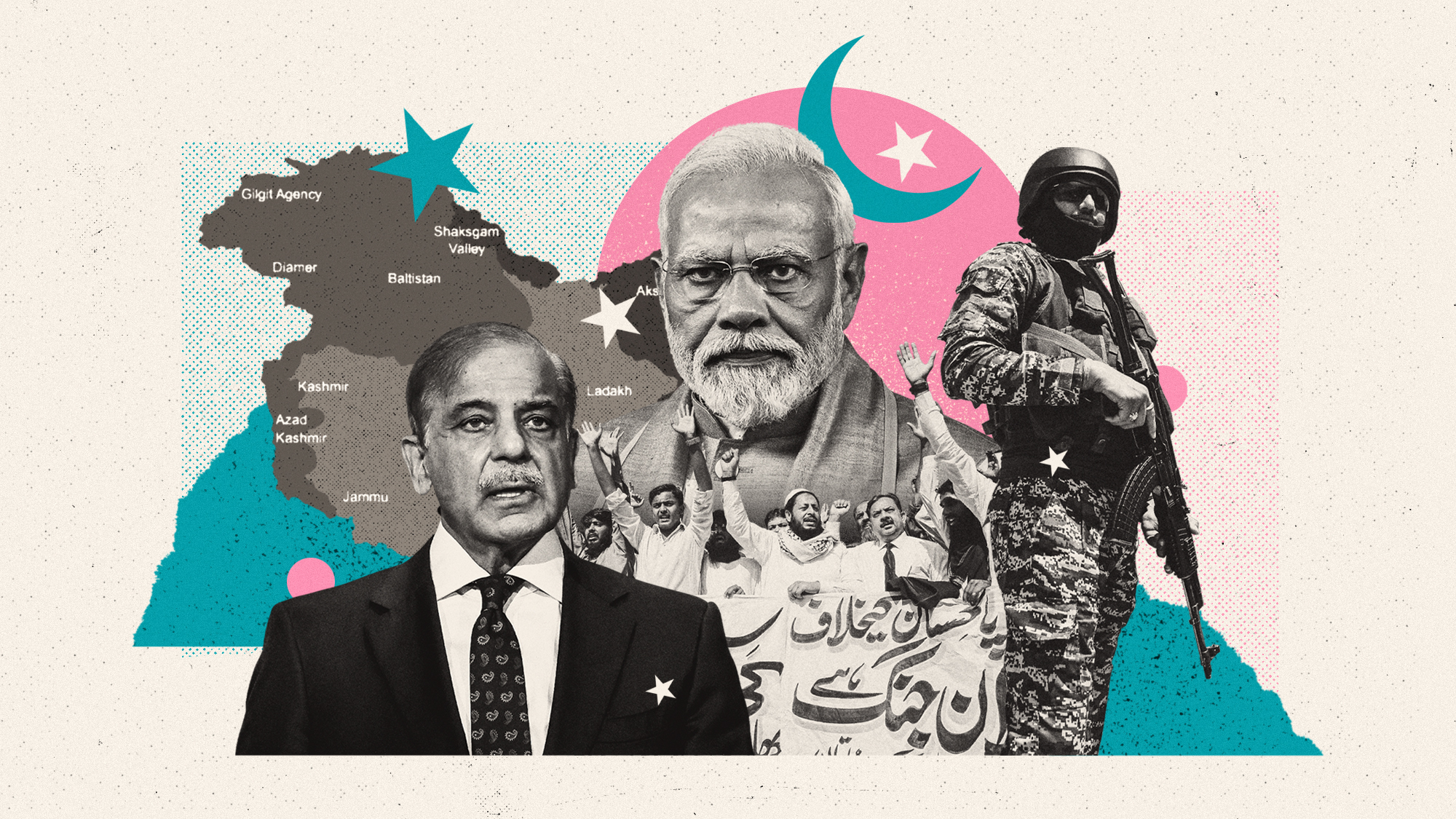 What happens if tensions between India and Pakistan boil over?
What happens if tensions between India and Pakistan boil over?TODAY'S BIG QUESTION As the two nuclear-armed neighbors rattle their sabers in the wake of a terrorist attack on the contested Kashmir region, experts worry that the worst might be yet to come
-
 Why Russia removed the Taliban's terrorist designation
Why Russia removed the Taliban's terrorist designationThe Explainer Russia had designated the Taliban as a terrorist group over 20 years ago
-
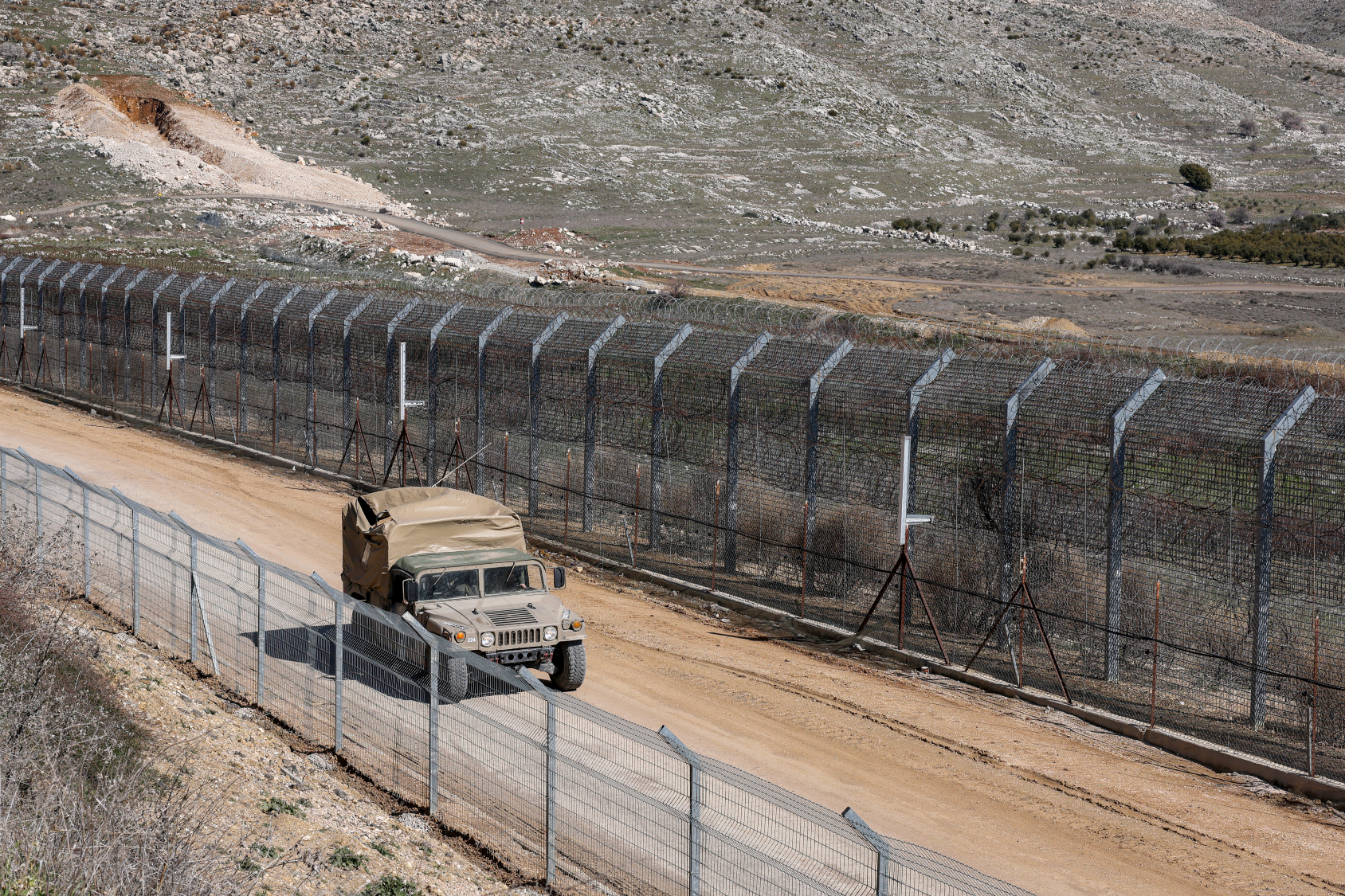 Inside the Israel-Turkey geopolitical dance across Syria
Inside the Israel-Turkey geopolitical dance across SyriaTHE EXPLAINER As Syria struggles in the wake of the Assad regime's collapse, its neighbors are carefully coordinating to avoid potential military confrontations
-
 'Like a sound from hell': Serbia and sonic weapons
'Like a sound from hell': Serbia and sonic weaponsThe Explainer Half a million people sign petition alleging Serbian police used an illegal 'sound cannon' to disrupt anti-government protests
-
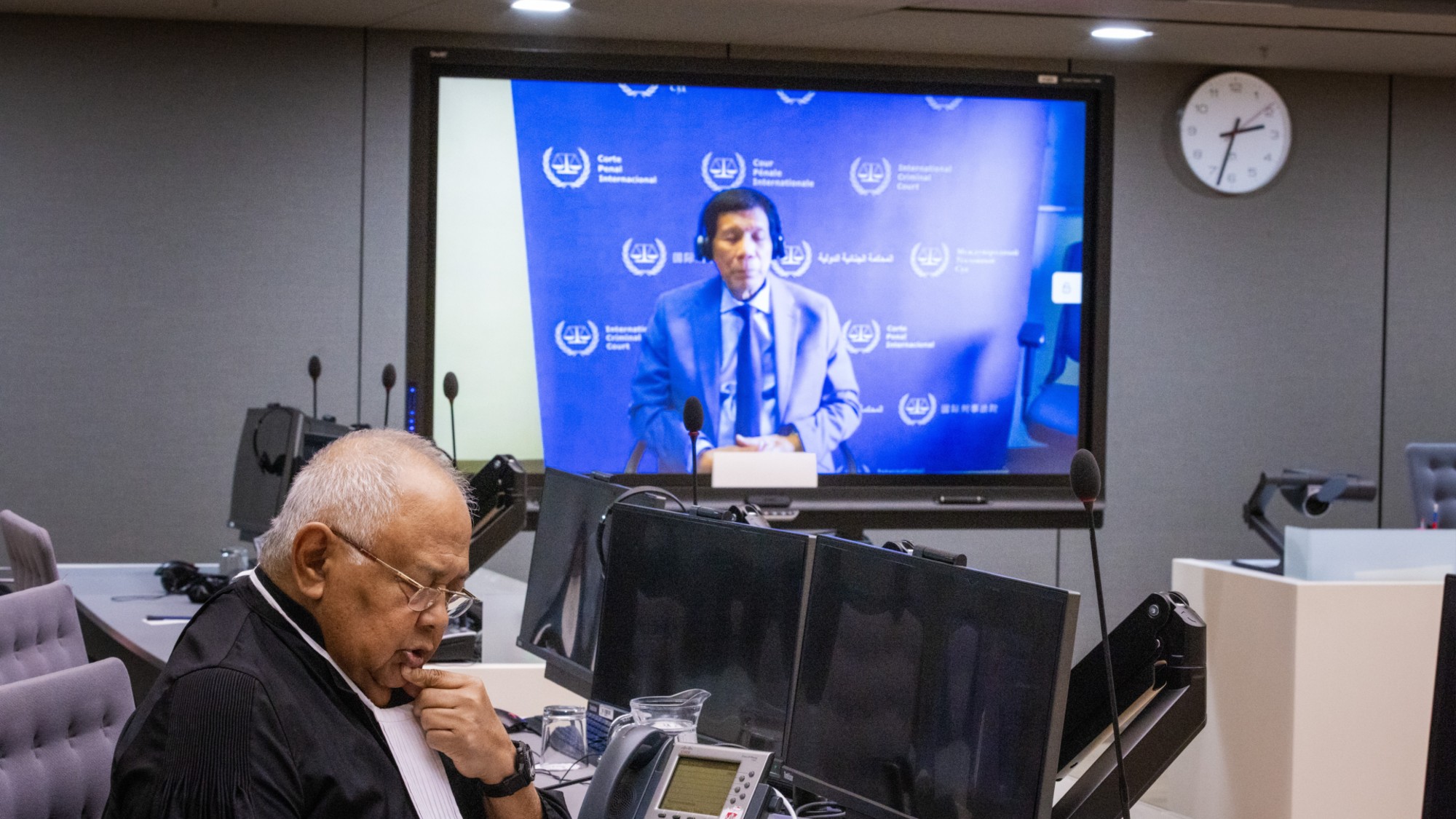 The arrest of the Philippines' former president leaves the country's drug war in disarray
The arrest of the Philippines' former president leaves the country's drug war in disarrayIn the Spotlight Rodrigo Duterte was arrested by the ICC earlier this month
-
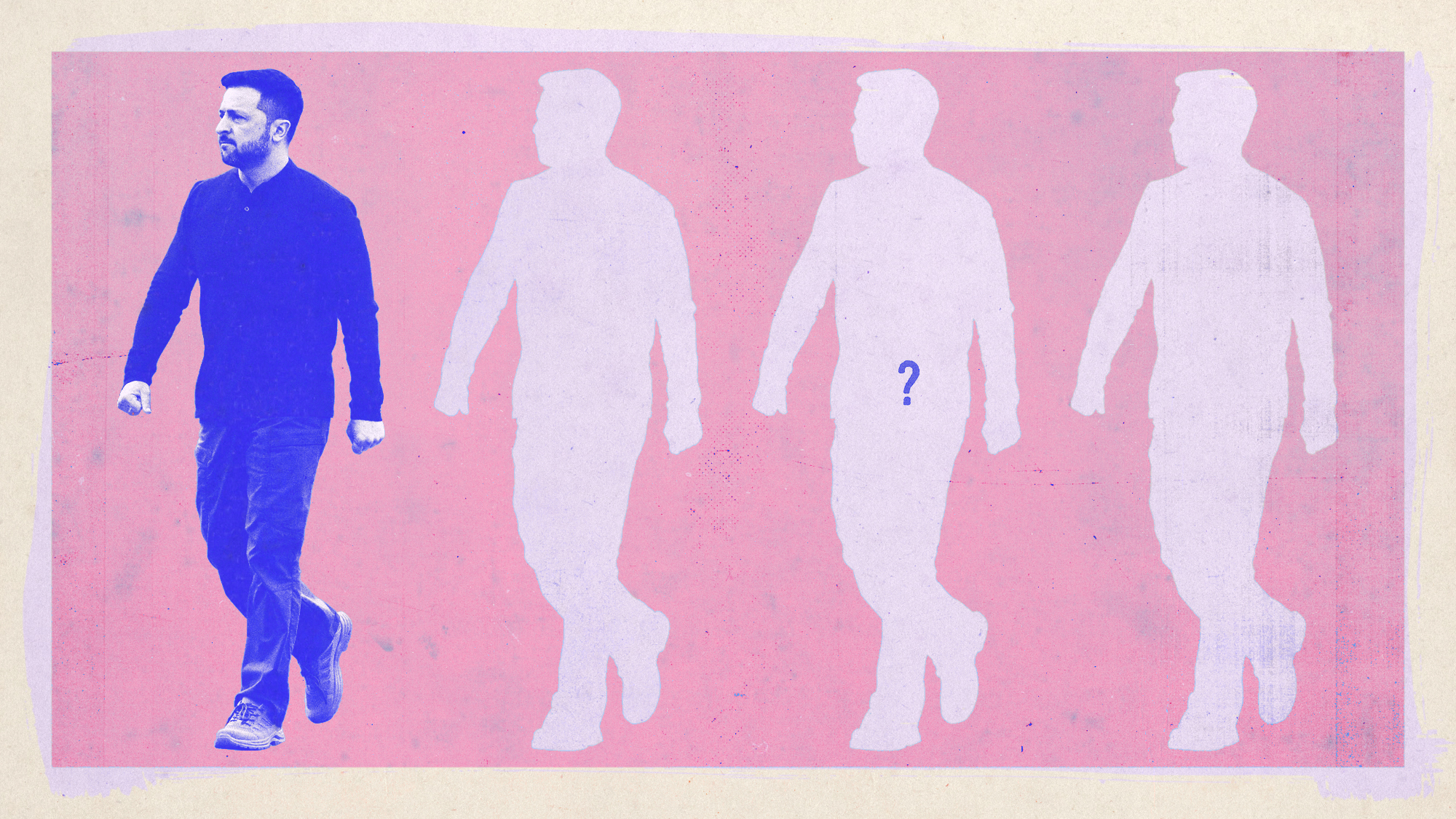 Ukrainian election: who could replace Zelenskyy?
Ukrainian election: who could replace Zelenskyy?The Explainer Donald Trump's 'dictator' jibe raises pressure on Ukraine to the polls while the country is under martial law
-
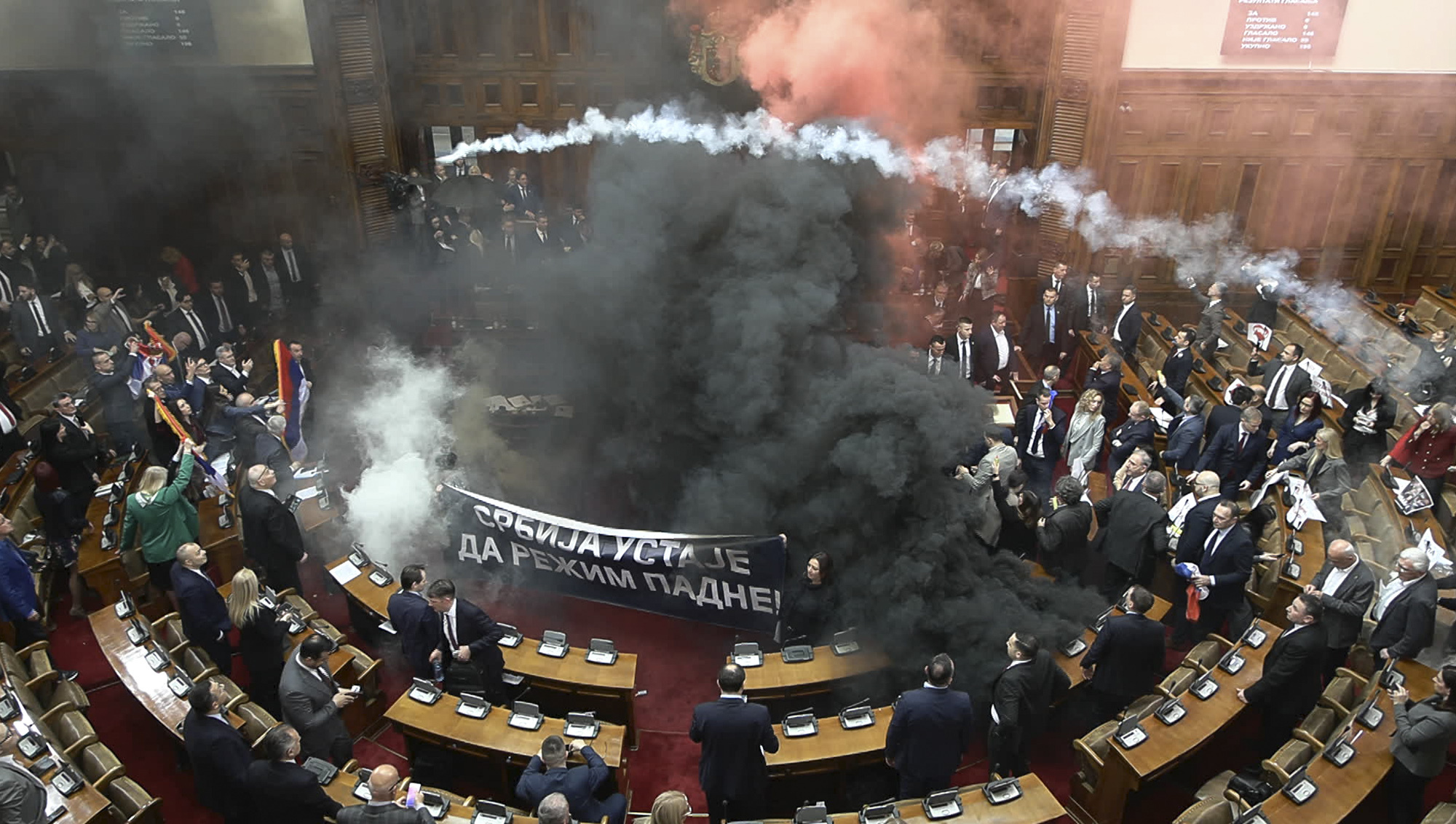 Why Serbian protesters set off smoke bombs in parliament
Why Serbian protesters set off smoke bombs in parliamentTHE EXPLAINER Ongoing anti-corruption protests erupted into full view this week as Serbian protesters threw the country's legislature into chaos